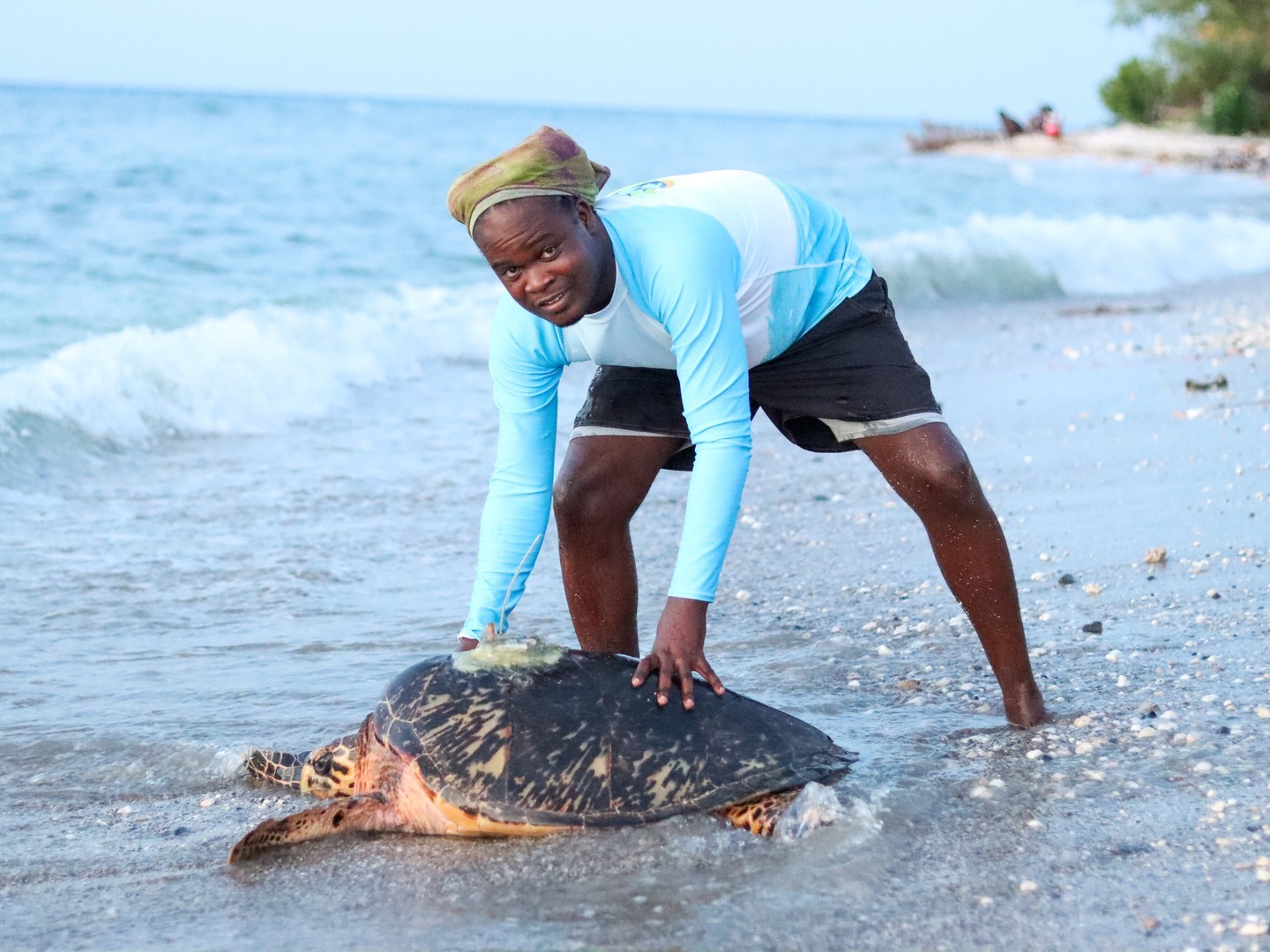- Groundbreaking initiative: The first documented satellite-tagged turtles in Haiti’s history.
- The importance of tagging: Gathering valuable data on sea turtle behavior and conservation.
- The specific role of the Hawksbill turtle and its conservation challenges.
- The impact of human activities on sea turtle populations and how projects like these mitigate such threats.
- The broader significance of Haiti Ocean Project’s work for wildlife conservation.
Earlier this year, the Haiti Ocean Project (HOP) achieved a significant conservation milestone by releasing the first satellite-tagged sea turtles in Haiti. This achievement not only marked a historic first but also underscored the potential of scientific advances in promoting wildlife conservation. HOP’s initiative involved fitting satellite tags on two Hawksbill turtles which had been inadvertently caught in fishing nets in Petite-Rivière-de-Nippes. Such efforts exemplify the dedication of conservationists to study and protect endangered species, an endeavor that holds immense promise for understanding sea turtle behavior and enhancing protection measures.
Satellite tagging is a critical tool in wildlife research, providing researchers with comprehensive insights into the lives of sea turtles. By tracking nesting, foraging, and migratory behaviors, satellite data helps reveal patterns that might otherwise remain unknown. This knowledge directly informs more effective conservation strategies. For instance, post-release monitoring of disentangled turtles can offer crucial information about their survival and integration back into the wild. Understanding these dynamics assists in crafting educational programs tailored to bolster both local and global conservation efforts.
The choice to focus on the Hawksbill turtle is neither incidental nor arbitrary. Hawksbill turtles are critically endangered, primarily due to the relentless demand for their beautifully patterned shells. This endangerment heightens the necessity for documenting their movements and behaviors to formulate protection plans. Hawksbill turtles contribute significantly to marine ecosystems, particularly through their role in maintaining healthy coral reefs. They consume sponges, which allows for better habitat conditions for reef-building organisms. Thus, conserving this species is vital not just for their survival but for the broader health of marine ecosystems.
Human activity remains a paramount threat to sea turtles globally, and Haiti is no exception. Coastal development, pollution, and fishing bycatch are pressing challenges that impact sea turtle populations. Projects like HOP play an essential role in mitigating these threats. By collaborating with local fishermen and communities, conservationists can devise practical solutions that accommodate both human and wildlife interests. Efforts such as these also strengthen community awareness and involvement, highlighting the interconnectedness of environmental welfare and human prosperity.
The work of HOP extends beyond scientific study. It embodies a commitment to environmental education and community engagement. By raising awareness about the endangered status of sea turtles and their critical role in marine ecosystems, the project fosters a culture of conservation. Informing communities about sustainable practices and the benefits of preserving ocean biodiversity empowers them to participate actively in conservation efforts. Moreover, the project serves as a model for similar initiatives in regions facing analogous challenges.
In sum, the release of satellite-tagged turtles by the Haiti Ocean Project represents a landmark achievement with wide-ranging implications for conservation. These efforts contribute to a deeper understanding of sea turtle behavior, pave the way for better protection strategies, and underscore the indispensable role of community collaboration in safeguarding wildlife. As we move forward, projects like these will continue to shed light on the pressing need to conserve our planet’s natural heritage, inspiring action and advocacy worldwide.
*****
Source Description
Earlier this year, @haitioceanproject (HOP) celebrated a groundbreaking milestone: the release of the first documented satellite-tagged turtles in Haiti’s history! 📡🐢
The HOP sea turtle team, coordinated by the Aquarium’s Marine Conservation Action Fund (MCAF) Fellow Francklin Barbier, tagged and released two Hawksbill turtles this summer, which had been accidentally caught in fishermen’s nets in Petite-Rivière-de-Nippes.
Why tag turtles? Satellite tags will provide scientists with valuable data on turtle nesting, foraging and migratory behaviors, as well as post-release outcomes of disentangled turtles—all to inform conservation and education strategies.
Learn more about HOP’s work: https://bit.ly/406foQy


